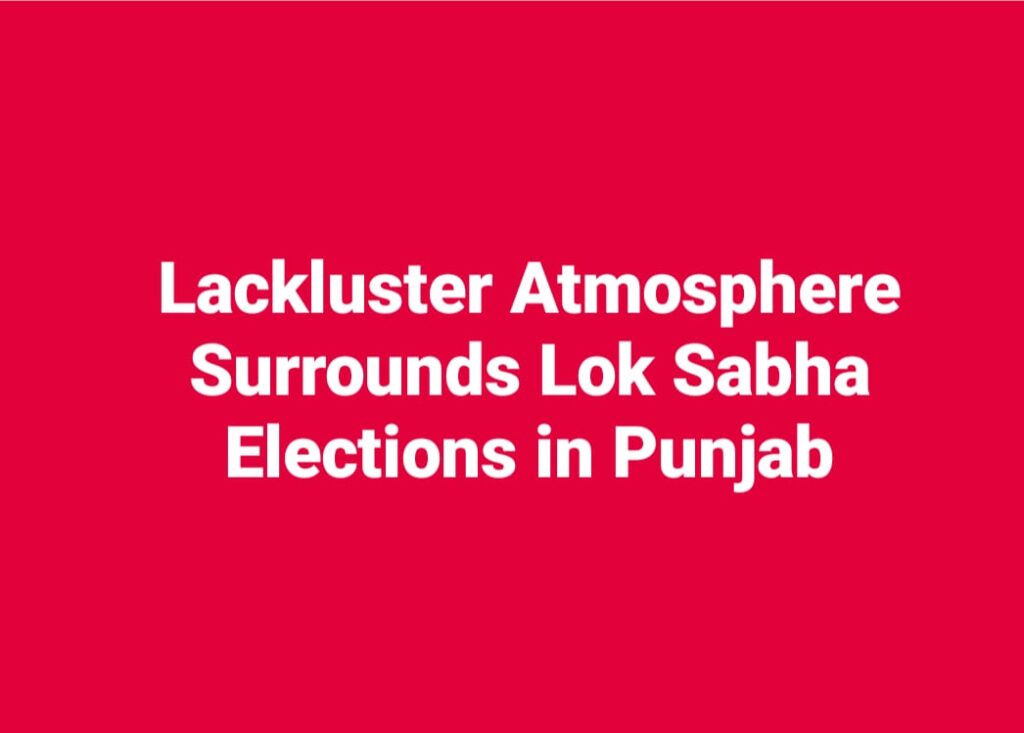1 May
Sandeep Dhand Ludhiana
With just one month left until the Lok Sabha elections in Punjab, a noticeable lack of enthusiasm pervades the political landscape. Unlike previous elections, the fervor and activity typically associated with campaigning are conspicuously absent this time around.
Despite political parties having announced candidates for almost all 13 seats in Punjab, there is a distinct lack of hustle and bustle in candidate war rooms and at supporters’ gatherings. Even in candidates’ homes, the customary festive atmosphere is notably subdued, with secret meetings and strategic planning seeming to be directed from higher authorities rather than being grassroots-driven.

The general public’s indifference towards the elections is palpable, with voters showing little curiosity or active engagement in the electoral process. Supporters of candidates are allocating less time and energy, while rural voters are preoccupied with the ongoing wheat harvesting season, diverting their attention away from political affairs.
This election cycle is poised to be the least expensive in Punjab’s history, with minimal expenditure on campaigning. The absence of campaign materials such as posters, flags, and badges, both in residential areas and during political rallies, reflects the subdued nature of the electoral atmosphere.
The downturn in demand for promotional materials has had a significant impact on local businesses, with shopkeepers who specialize in campaign paraphernalia experiencing a decline in their fortunes. The provision of campaign materials directly from political party headquarters, particularly by parties like the BJP, has further contributed to this decline in demand.
Overall, the lack of excitement and activity surrounding the upcoming Lok Sabha elections in Punjab paints a stark contrast to previous election cycles, signaling a shift in the dynamics of political campaigning in the region.
